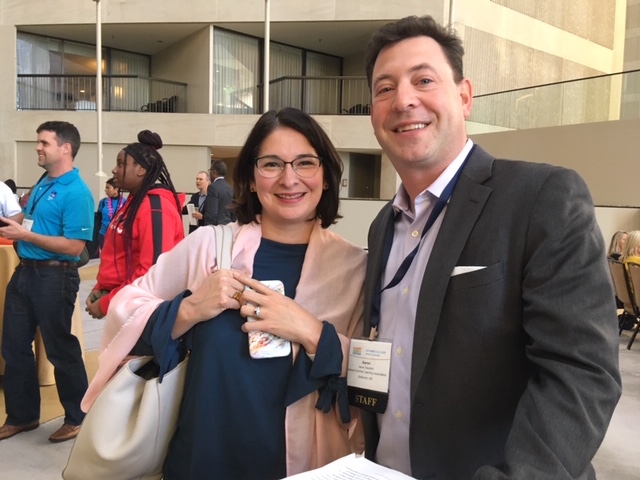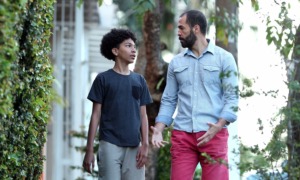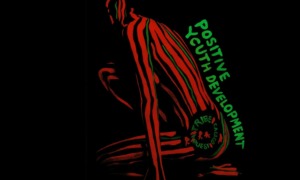
Photos by Stell Simonton
Aaron Philip Dworkin (right) became CEO of the National Summer Learning Association in June. He’s shown here at the organization’s annual conference in Atlanta Oct. 21-23. At left is Marissa Castro MiKoy, executive director of After-School All-Stars North Texas.
Youth Today reporter Stell Simonton spoke with Aaron Philip Dworkin, CEO of the National Summer Learning Association, on the closing day of the association’s national conference in Atlanta. This interview has been condensed for clarity.
Stell Simonton: The first thing I wanted to ask you about was recent research from Paul T. von Hippel at the University of Texas, who said there may be no such thing as summer learning loss. [Von Hippel questioned the evidence showing low-income and disadvantaged minority youth lose ground academically over the summer in the article Is Summer Learning Loss Real?, which appeared in Education Next.]
Aaron Philip Dworkin: There’s a lot of research to show the effects of summer learning loss — many, many studies.
There has been some debate about the challenges of replicating the study from 40 years ago done by [now retired] Professor Karl Alexander from Johns Hopkins, who’s here at this conference. He wrote a response to Professor von Hippel, who has also been an ally.
First of all, they agree on more than they disagree on. Even Professor von Hippel says summer is an important time for young people. It’s a place and time for them to improve and should be invested in. So there is agreement there.
The questions about loss were more about the actual technicalities of the study. And Professor Alexander responded in the same journal and wrote a response that you could see on our website as well.
There is agreement that there are setbacks for young people, especially low-income young people who don’t have the same opportunities as their middle- and upper-middle-class peers.
I think even some of Professor von Hippel’s research emphasized the obesity challenges and the health challenges for low-income kids over the summer when they don’t have access to physical activity and healthy food.
The majority of research does show that there is a huge opportunity for growth in the summer. And we want more research done to define what works, what doesn’t work, where the challenges are and where can we invest more efficiently.
‘Test that out’
SS: Summer learning programs do additional things besides address academics.
APD: Sure. Summer is almost like research and development time — an arm of the education field for anyone who has a new idea, sees a challenge and wants a new solution. Summer is a way to test that out, to model that, to get enough data to see what works and what doesn’t work — with actual students and staff — before you roll it out and scale it across a school system or city.
So summer [is about] opportunities for young people, especially low-income ones.
There are 20 million young people on the free and reduced lunch program in America. They don’t have families that could sign them up for a sleep-away camp and burn a lot of opportunities — museums and trips to Europe and … teams and a million things that they get to do.
Who is going to help them? Our field is trying to address that challenge.
We think about closing the achievement gap. We think about closing the opportunity gap.
There are programs that we want to support, whether they’re at schools, libraries, parks and rec centers, public housing. [We want to] meet kids where they are in the community.
There are … a million examples of great experiences that are outside the box — different than what school is — but continue to promote learning in many different ways. We want to make sure kids have access to that.
And then as young people get older … summer internships are a form of summer learning. You’re interning at a place to learn about a job, a career path that you might not know about. … The unpaid internship is really exclusionary, in my opinion, potentially discriminatory against low-income people. [They] can’t do an unpaid internship.
So who’s going to advocate for paid internships and make sure the business community, the government and nonprofit sectors know that internships matter? They lead to jobs, full-time jobs, and to experience you can put on your resume. …
Summer jobs too
SS: You’re saying that the National Summer Learning Association is an advocate for low-income young people.
APD: Absolutely. We care about summer high-quality experiences for all people in America but the most vulnerable ones who can’t access them — that’s who we’re advocating for.
Why should it only be for kids whose families have the means? …
And then summer jobs also matter a great deal. For teenagers especially, it’s your chance to have your first job and to learn skills and make money.
There are all these citywide youth employment programs over the summer. We want to work with them to make sure they’re creating high-quality experiences. So we’re broadening the tent here about what summer learning can be defined as.
And one other thing I’ll mention … is that summer learning is not only for young people.
One of the great “value adds” of our field is that if you run a high-quality summer program, not only do the young people benefit, but the adults [also]. A lot of time, certified teachers get re-inspired and re-engaged. If you want them to be trained on some new curriculum, this is their chance to do it. So the summer programs actually double up as professional development and this sets everyone up for success in the school year.
SS: What is your organization doing to make summer learning programs high quality?
APD: We focus on what I would refer to as the four Ps.
We’re trying to make sure that there are public policies in place to support and promote high-quality summer programs. …
And then there are partnerships … The summer and out-of-school-time fields thrive when government, nonprofits and business partners are all working together — not only to set up these programs — but to sustain these programs.
At this conference — and in a lot of the things we do — we bring stakeholders together. Typically they’re just so busy and they’re so siloed that they don’t realize 1) that other people are doing similar things that are complementary and 2) they don’t know exactly where they could fit. We’re a broker of partnerships. …
Best practices: We document what’s working. We have materials, webinars, trainings. We have field consultants that fly around the country and work with programs to show them.
We have a great guide called Summer Starts in September. We’re also working with the Wallace Foundation, creating a new tool kit for summer. … And we’re trying to show people what a high-quality program looks like, which is strategic and intentional and has great youth development qualities …
It’s not enough just to set up a program. It has to be a high-quality experience. We know what that looks like and we can describe it. We have materials to help people, and trainers to help them get there.
The last thing is we’re investing in the people. Education ultimately is a people business and a relationship business. And we need leaders at every level and inside organizations who have the tools, who have the training, who can pull all this together. And so we’re investing a lot in the leadership development of our field.



























